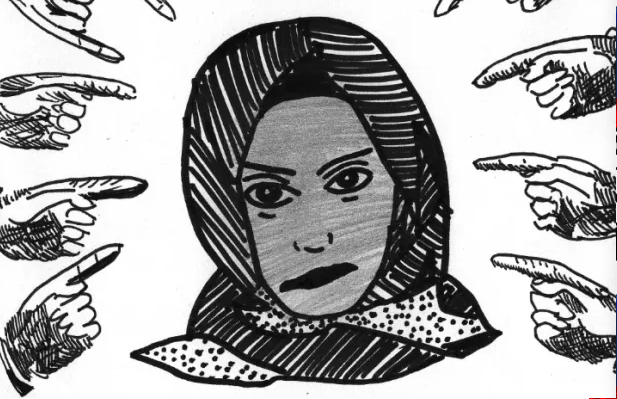As this is being written last night two New Zealand mosques were attacked by a white nationalist wearing army fatigues, carrying four fire arms as well as being armed with explosive devices. The attack was brutal, 49 people being killed and more injured, one man who was interviewed by ABC News had blood spatter on him while hiding. The gunmen live streamed his attack on the internet. Even the mainstream media is connecting this attack with wider trends of white supremacy, ABC reporting that the FBI (the same agency which was part of campaigns in the United States to repress liberation movements of people of color) shows that hate crimes went up in the US 17 percent in 2017 alone. They also report that “counterterrorism experts” know that 70 percent of the terrorist attacks in the country in the last decade were carried out by white supremacists, or the far right (Sam Harris’ head must be spinning). Unfortunately the mainstream media narrative here is not spotless. While ABC clearly shows that President Trump’s assertion that white supremacy is only a problem with a few cooks to be demonstrably false, it fails to appreciate the bigger picture. On ABC’s narrative white supremacy is simply a growing trend of hatred, rather than an overt tool used by the global political-economic system.
Racism is not simply an attitude, or a bigotry. It was born as and remains a system of social control. It is a societal hierarchy which gives social, political, and economic power to those who meet a socially constructed standard of “whiteness” and allocates this power away from people of color based on socially constructed criteria that portray said people as the “other”. Racism has it’s genesis in the historical moment when the capitalist economy, expanding out of Europe, had those who are today considered “white” conquer the lands of people of color, reducing these societies to colonies for naked economic exploitation and complete cultural and political control. This process always involved killing off huge swaths of indigenous populations and enslaving people of color as a source of free labor. To justify this domination the colonizers came up with a pseudo-identity, whiteness, in which they were ranked above people of color in terms of basic human value. The white was fully human, but those of color were not, they were something else, something different, which meant treating them differently was justified. Although formal colonialism was abolished after the second world war, colonialism as a system of power remains. The old colonial states are now the economically and geopoliticaly powerful countries, while the former colonies, even though they now have status as independent nations, are fully subordinate to the former geopolitically and economically. Formal colonialism set up a situation where the “core” countries could become so economically and geopolitically powerful that global politics and the global economy would always sideline the “peripheral”, or semi-peripheral former colonies.
Since colonialism remains so does racism, this time, in modern western societies, under the veil of post-racial harmony. Sure white people control the vast amount of wealth and power, sure the state criminalizes people of color, sure people of color are still viewed as essentially different from white people, but it’s impolite to express open racist views in public. So the ideological veil of progress (rather than it’s actual existence in many instances) hangs over the reality of white supremacy in the 21st century. One of the most acute forms of racism today is Islamophobia. When this phrase is uttered many respond that “Islam is a religion, not a race, non-Arabs can be Muslims too!”. All that this does is ignore the racialization of Islam in the west. Since 911 a clear picture of the Muslim as the Arab terrorist has been constructed by the United States and many other western societies. We have even been portraying Arabs as shady, unscrupulous, and even stupid characters in our films long before the events of 2001.


